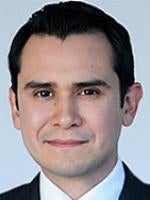A couple of recent district court decisions confirm that courts across the country continue to scrutinize and will dismiss complaints that contain conclusory and/or contradictory allegations without facts to support plaintiffs’ TCPA claims. And in particular, where complaints attempt to lump multiple defendants together without sufficient allegations to support direct or vicarious theories of liability.
In Woodard v. Health Insurance Alliance, 2024 WL 942629 (N.D. Ill. March 5, 2024), plaintiff alleged that she received two unsolicited telemarketing calls from Defendant Health Insurance Alliance (“HIA”), but a few paragraphs later she also alleged that the second call she received was from a third-party rather than HIA itself. The district court dismissed plaintiff’s complaint for failure to state a claim finding that (1) plaintiff’s complaint contradicted itself because it alleged that both defendant and a third party placed the same call to her, (2) plaintiff did not provide the circumstances surrounding her belief that HIA was responsible for the calls she received, and (3) plaintiff attempted to attribute the caller’s calls to defendant with no allegation of direct defendant liability or any factual allegations showing a formal relationship between the caller and defendant. The court concluded, “TCPA actions must allege some facts which are distinguishable from the statutory language of the TCPA itself to state a claim and survive dismissal.” Woodard, 2024 WL 942629 at *3.
The Court in Forteza v. Affordable Auto Shield, 2024 WL 898905 (N.D. Tex. Feb 29, 2024) similarly rejected a plaintiff’s generic pleading in a TCPA suit. Plaintiff’s complaint alleged that she received at least 31 unsolicited calls from defendants all initiated by an ATDS, “as indicated by a 3-4 second delay of dead air when the call first connected.” The complaint then identified 23 of those calls by their date and the number initiating the call. However, except for one of these 23 calls, plaintiff alleged no further details regarding which defendant called her or what was said. The district court dismissed plaintiff’s complaint for failure to state a claim finding that (1) where plaintiff has sued three different defendants based on 23 identified calls, pleading only the time, date, and phone number associated with 22 of those calls is inadequate to connect a particular defendant to the misconduct alleged, (2) after Facebook v. Duguid,[1] alleging “dead air” before a call connection is not sufficient to state an ATDS claim, and (3) plaintiff did not allege that she put herself on defendants’ internal do-not-call list and did not make any other allegations from which the Court may at least infer that a defendant failed to institute required procedures for maintaining a do-not-call list.
These decisions reinforce that defendants can often score an early win in litigation by challenging a plaintiff’s carelessly plead complaint. It’s always worth vetting the likelihood of dismissal where a plaintiff fails to plead factual allegations tying the alleged claims to the defendant’s conduct, especially where a plaintiff attempts to conflate multiple defendants without explaining who allegedly did what.
Endnotes
[1] 141 S. Ct. 1163 (2021).





 />i
/>i

